The Surprising Impact of Protein for Women Over 60
Attention, my fabulous female friends over 60, did you know that your body may not be getting enough protein?
It’s true!
As we age, it’s no secret that our bodies go through crazy changes, and because of that, it can affect our nutrient intake.
I learned long ago about the importance of protein in my diet. I have preached about it for years with my patients and while training.
But now that I’m in my 60’s, I’ve found that protein plays an even bigger role.
Why?
Because protein helps us develop and hold onto muscle mass, which we naturally begin to lose after 60, increasing our risk of falls.
It also helps with bone health, which again becomes an issue as women age.
Studies have actually shown that women over 60 get less protein in their diets than younger people—that’s crazy since we are the ones who probably need it the most.
So, are you wondering why protein is so important, how much you actually need, and what the best way is to get enough protein?
Don’t worry. We are about to dive into all things protein for women over 60.
I’ll also give you tips on the best ways to increase your protein intake.

The Importance of Protein for Women Over 60
As I said, all women over 60 experience a natural decline in muscle mass, which really sucks!
Decreased muscle mass can be a real game changer when it comes to our mobility and overall strength.
But because protein helps us to hang onto and even build muscle, it becomes the golden nugget to keep us strong and more active.
Protein is also important for bone health. It helps with calcium absorption, which can help with bone density and osteoporosis – as we all know, this becomes more of a threat in women over 60.
A protein-rich diet also keeps you fuller longer, which can lead to better weight control and weight loss.
Biological Changes and Protein
As we dance past 60, we begin to experience age-related muscle loss, this is called sarcopenia.
We also don’t digest food the same way, which means that we might not absorb nutrients, including protein, as well as we used to.
We now need more protein to achieve the same muscle synthesis level as younger people – this is due to anabolic resistance, which means that our muscles don’t grow as easily.
So, now more than ever, we need to be even more aware of the quality and quantity of our protein sources.
Recommended Protein Intake
So, how much protein do we need?
Recent studies have shown that women over 60 should aim for 1.0 to 1.2 grams of protein per kilogram of body weight daily. So, if you’re a 150-pound woman (68 kg), you need at least 68-82 grams of protein daily.
I personally feel that this should just be a starting point, especially for active women over 60.
I have always opted for a higher protein intake of 1 – 1.2 grams of protein per pound of body weight. So, I am 135-140 pounds (varies daily – you know what I’m talking about ladies), and my daily protein intake stays around 140 grams.
There are recent studies out that are now proving that older women would benefit from larger protein intake than younger people.
If you are unsure of how much protein you should take in daily, you can use this Protein Calculator.
Be sure to spread your protein intake throughout the day. It’s just easier to make sure that you are getting a constant supply of protein – and it also won’t make you sick trying to get it all in at once.
Eating balanced meals that include protein can make a huge difference in how we feel and function.
Protein and Muscle Mass Retention
Maintaining muscle mass isn’t just about looking toned; it’s also important for just our overall health.
Our muscles support our balance, metabolism, and mobility.
Getting enough protein helps slow down muscle loss and can even help us gain new muscle.
Resistance training, along with good protein intake, is a powerful combination.
It’s like giving our bodies a one-two punch against muscle loss.
Don’t underestimate the role of protein in recovery after workouts.
Eating a protein-rich snack or meal after you exercise can help repair and build muscle, which will keep you feeling strong and energetic.
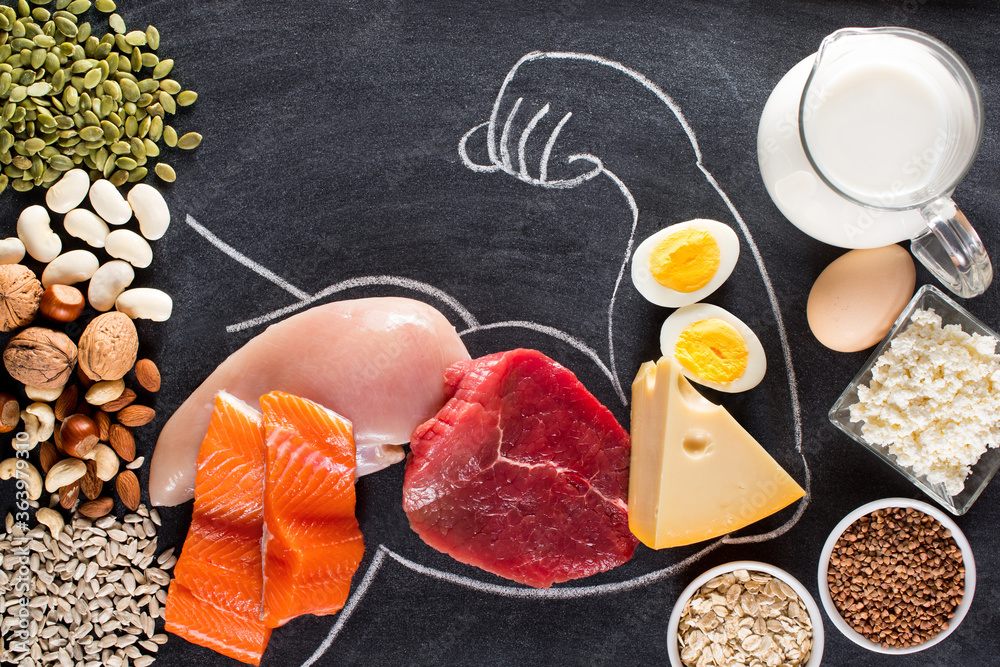
Sources of High-Quality Protein
High-quality protein is important, especially as we age.
Here are some animal and plant-based protein options.
Animal-Based Protein Options
Eggs are a fantastic source of protein. One large egg has about 6 grams of protein.
Chicken breast is another great option. A cooked chicken breast contains around 26 grams of protein.
Red Meat is a fabulous choice. A 6 oz steak has 42 grams of protein! This makes it easier to hit your protein requirements.
Fish like salmon or tuna are protein-rich, too. A 3-ounce serving of salmon provides roughly 22 grams of protein.
Greek yogurt is delicious – (well, I think so anyway). One cup has about 10 grams of protein. Try adding some berries or granola – YUM.
Milk and cheese are also good sources of protein. One cup of milk has 8 grams of protein, and an ounce of cheddar cheese has about 7 grams. These are perfect for a quick snack or post-workout food.
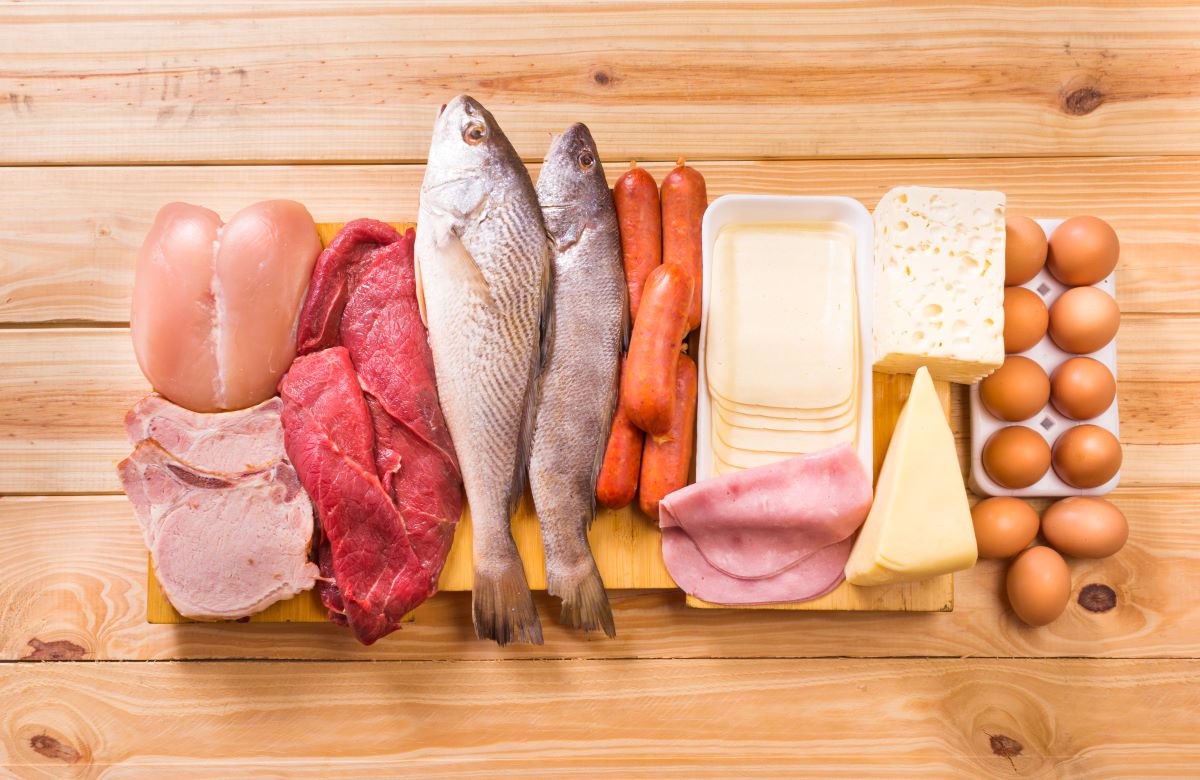
Plant-Based Protein Choices
Beans and lentils are wonderful plant protein sources. Yes, they can leave you a little gassy, but a cup of cooked lentils contains roughly 18 grams of protein. They are also rich in fiber, which is great for digestion.
Tofu and tempeh are fantastic for those who prefer soy products. Half a cup of tofu has around 10 grams of protein. Tempeh has even more, with approximately 15 grams in the same serving size.
Quinoa is a complete protein source, which means that it contains all the essential amino acids. One cooked cup provides 8 grams of protein.
Nuts and seeds like almonds, chia seeds, and pumpkin seeds are also great choices. An ounce of almonds has about 6 grams of protein, while a tablespoon of chia seeds has around 2 grams.
Chickpeas are protein-packed, too. A cup of cooked chickpeas contains around 15 grams of protein.
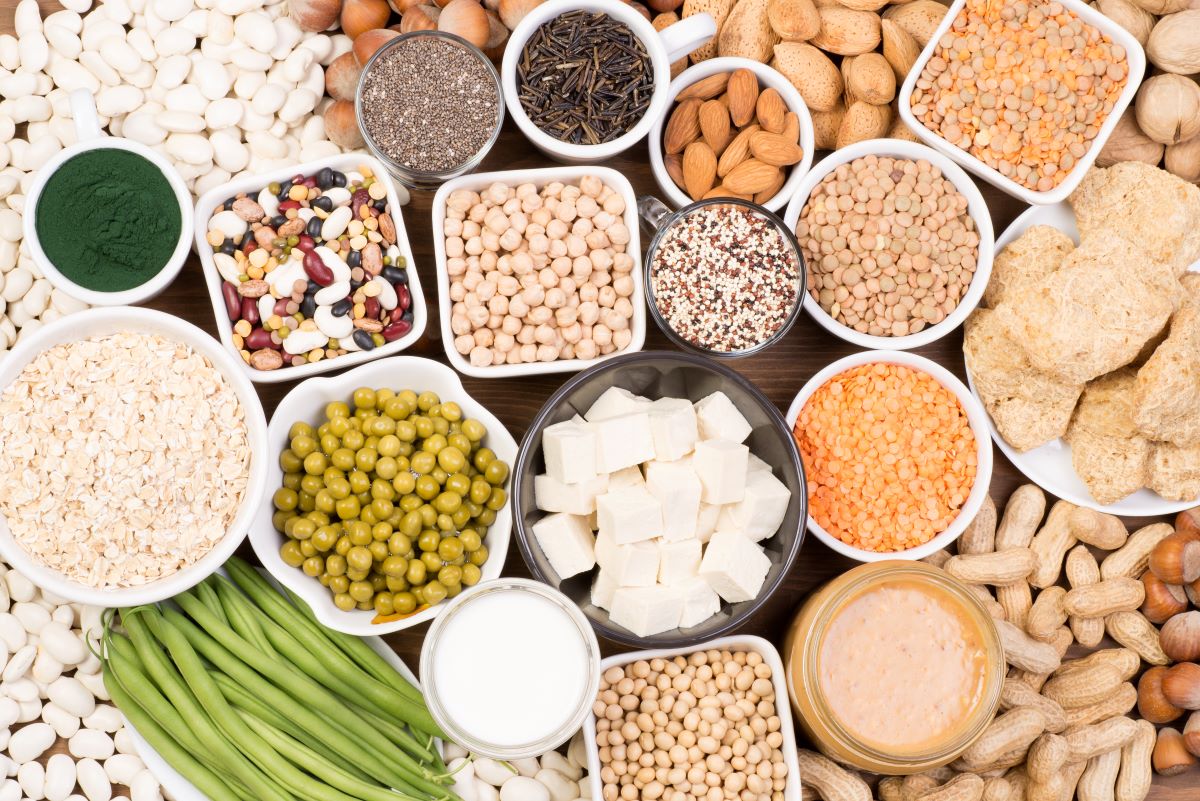
Including More Protein into Your Diet
Trying to get in enough protein can feel challenging, trust me I get it!
So here are some meal-planning tips to make this easier.
Protein-Rich Recipes
Trying new recipes can help you get in more protein without becoming bored with the same old chicken breast and vegetables. (Not that this is a bad choice, but after a week or two of having it for dinner, you will be ready to move on to something different).
Quinoa and Black Bean Salad: Quinoa is a complete protein, but when you add black beans, it makes a delicious salad. Add some bell peppers, sweetcorn, and a zesty lime dressing for extra flavor.
Greek Yogurt Parfait: Start your day with a layered parfait of Greek yogurt, berries, and a sprinkle of nuts. It’s high in protein, and it’s yummy.
Chickpea and Spinach Stir-Fry: Chickpeas are a huge source of protein. Toss them with some fresh spinach, garlic, and a splash of soy sauce for a quick and nutritious meal.
Smoothies: Oat milk, Greek yogurt, peanut butter, berries and some spinach is one of my protein packed favs. It’s quick and easy to prepare.
Challenges and Solutions to Getting Protein in Your Diet
When I teach about increasing protein intake, whether for wound healing, strengthening, or muscle building, I get many of the same concerns or excuses for why people can’t increase their protein intake.
Here are a few of them and some solutions I provide.
1. I don’t like meat, or I am a vegetarian – there are so many other options to get in your proteins. Meats are not the only choice you have. Plant-based options like nuts and seeds, tofu, tempeh, and legumes are great options to choose from instead.
2. Too much protein makes me sick to my stomach – Spead your protein intake throughout your day. Try high-quality protein sources like fish, eggs, and plant-based proteins, which are easier to digest. You can also use protein powders or smoothies for a gentler option.
3. How do I make sure that I get enough protein every day? – I do not agree with “dieting” but I do believe that you should eat healthy. So, to manage my protein intake I use an app like MyMaros+ or Lifehacker. There are several other options as well. Also, consider meal planning to take the guesswork out of getting in your protein.
The Role of Supplements
I am a huge fan of protein supplements because I try to get 140 grams of protein a day. I would never reach my goals without supplements like protein shakes or protein bars.
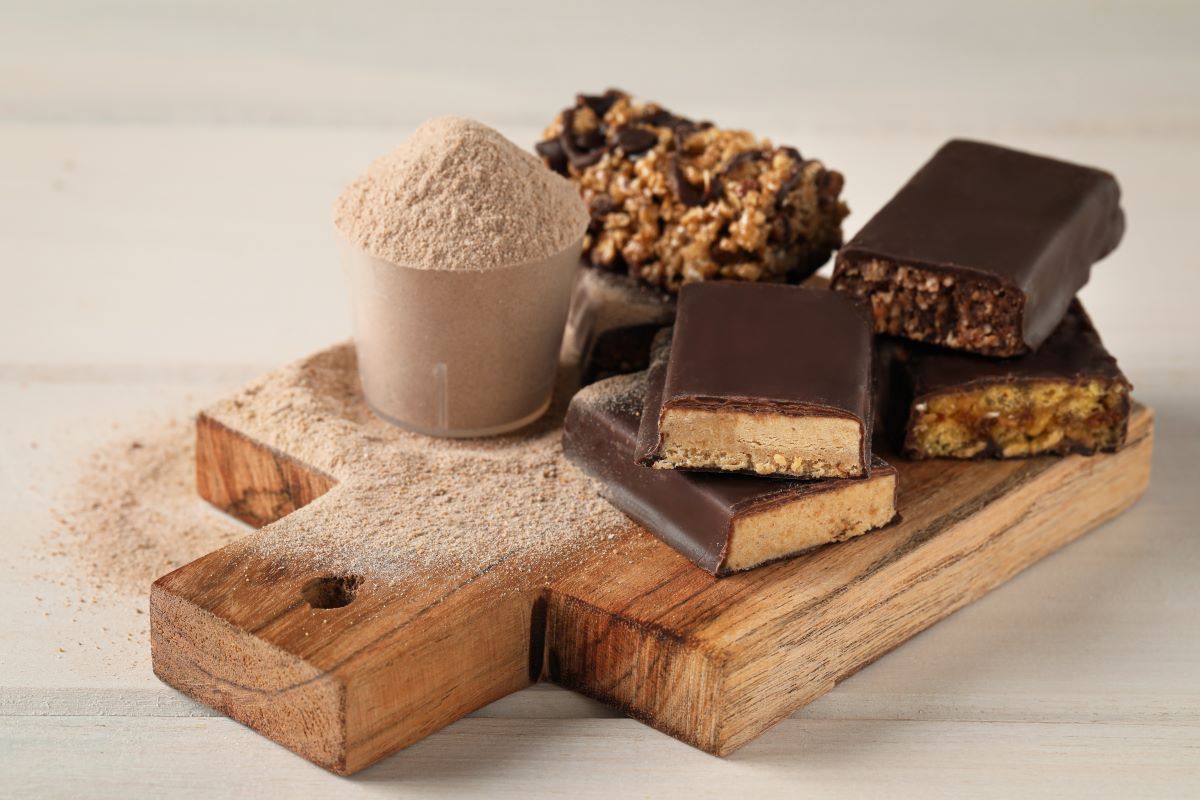
When to Consider Supplements
Here are a few reasons that protein supplements can be useful.
If you are trying to grow muscle and you need a higher protein intake.
Decreased appetite.
Health conditions that interfere with digestion or absorption of protein.
After surgery or an illness, when you need increased protein.
Choosing the Right Protein Supplement
Getting the right protein supplement that fits your needs is important.
Whey protein is a popular option because it’s easy to digest and quickly absorbed.
Plant-based proteins, like pea or soy protein, are a great option for anyone that is lactose intolerant or following a vegetarian diet.
When picking out a supplement, look for options with minimal added sugars and artificial ingredients. You will be surprised how many “healthy” protein supplements are packed with sugar!
If you have any health conditions involving digestion or absorption, you may want to talk with your medical team.
READ MORE: The Pros And Cons To Protein Supplements | Simply Aging Healthy
Monitoring and Adjusting Protein Intake
How do you keep track of your protein intake?
First, start with reading labels. Check to see how many grams of protein are in everything you eat.
Keep a food diary or find an app. Tracking what you eat every day helps you to see if you’re meeting your protein needs.
Pay attention to how you feel. Are you more tired than usual? Experiencing muscle loss? These can be signs that you might not be getting enough protein.
Don’t hesitate to adjust as needed. If you notice any of these signs, try adding more protein-rich foods like lean meats, beans, or dairy to your diet.
Importance of Protein for Women over 60
As you can see, it’s extremely important for all women over 60 to get enough protein as part of a well-balanced diet.
Protein is the building block for our muscle mass and bone health.
But that’s not all, protein also offers health benefits when it comes to weight loss or weight management.
There are several ways to increase your daily protein intake, whether it’s through protein-rich foods or supplements.
The future is full of possibilities and opportunities, and it all starts with taking care of ourselves.
So, ladies, let’s give our bodies the protein that it deserves and age with strength and vitality.
Don’t forget to share your thoughts in the comments section below and keep the conversation going.
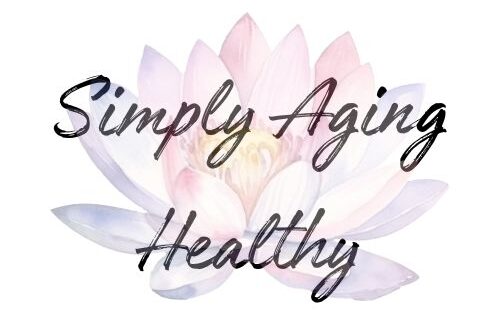
Simply Sseven Pretty! This has been a really wonderful post. Many thanks for providing these details.